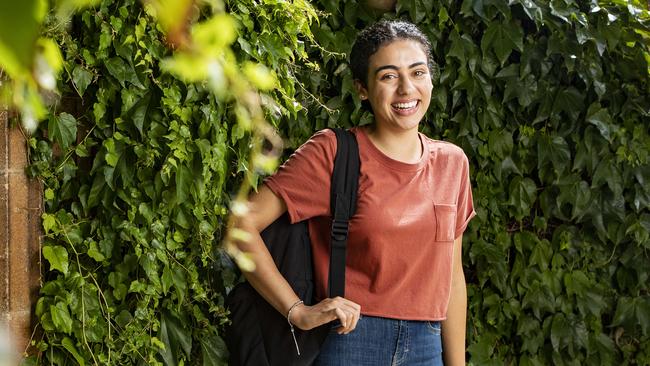No subject too hard for those willing to apply themselves
Anyone in doubt about the enormous strides girls have made in education need only look at the Year 12 honour rolls from last year.

Anyone still in doubt about the enormous strides that girls have made in education over the past few decades need only take a glance at the Year 12 honour rolls from last year.
In NSW in 2018, two-thirds of Year 12 subjects were topped by girls, including several science and mathematics subjects that not so long ago were considered typically “male subjects”.
Preliminary HSC results show that girls achieved a higher average Australian Tertiary Admission Rank than boys, at 71.10 compared to 67.80.
Since the endorsement of Australia’s first national policy for the education of girls in schools in 1987, there has been significant interest in and awareness of the educational needs of girls and, not surprisingly, performance. While girls outperforming boys started dominating the headlines from the mid-1990s, there is evidence that from the time that girls were first permitted to sit the high school matriculation exams in the 1880s, they were holding their own.
“The neuroscience is quite clear, there’s no so-called pink brain or blue brain,” says Loren Bridge, executive director of the Alliance of Girls Schools Australasia. “Any differences (in academic achievement) usually come down to the learning environment and any gender biases they bring.”
Data collected via NAPLAN shows girls outperform boys in most categories, from Year 3 on, recording higher mean scores for reading, writing, spelling and grammar and punctuation.
However, boys come out ahead in numeracy.
Science isn’t assessed annually, although sample testing conducted in 2015 revealed that Year 6 girls, for the first time, were performing significantly better than their male counterparts. They were also reporting strong interest in learning new things in science and doing science-based activities.
Yet, by the time girls reach their senior secondary years, many have given up on the subject, as well as maths. Girls are now outnumbered four to one in senior physics classes and almost two to one in advanced maths. It is hardly surprising that women make up just 16 per cent of university science, technology, engineering and maths, also known as STEM, graduates.
The Office of the Chief Scientist has done extensive work in a bid to bust the myths that are blamed for holding girls back from STEM careers, including that “girls are bad at maths”.
Having analysed scientific literature from around the world it found girls outperformed boys in mathematics in 13 countries, compared to seven countries where boys outperformed girls. It concluded that here was “no innate difference in mathematics ability”.
Another myth is the claim that women are “disinterested” in the fields of engineering physics. Yet, according to the Chief Scientist, women’s participation in these domains increases in “inclusive cultural environments”. Women actually account for 40 per cent of engineers in China and 44 per cent of engineering graduates in Malaysia. Here, just 14 per cent of engineers are women.
Caitlin Abood, a first-year student at the University of Sydney, describes herself as studious, drawn to logic and a keen problem solver. Still, as a primary school student, she struggled with mathematics and recalls thinking to herself “if I can’t be good at maths, I will just find something else I’m good at”.
Fortunately, her mother was having none of that and urged her to try a little harder, to practise a little longer, and that she’d “get it” in the end.
And she was right.
“I took it as a challenge, I guess, and I grew to like maths,” the 18-year-old says. “And by my senior secondary years I found I really excelled at it.”
Her single-sex secondary school, Catherine McAuley, Westmead, also happened to take seriously its role in promoting girls to careers that they might never have considered 30 years ago, and would invite professionals in science, maths and technology fields to be come to talk to the students about their work.
“It was actually through having a guest speaker come and talk about engineering that I came to realise that that’s what I wanted to pursue,” the 18-year-old says.
Having attained a distinguished achievement in all of her HSC subjects — economics, advanced English, mathematics and mathematics extension, physics and religion — she is now enrolled in a double science and engineering degree.



To join the conversation, please log in. Don't have an account? Register
Join the conversation, you are commenting as Logout